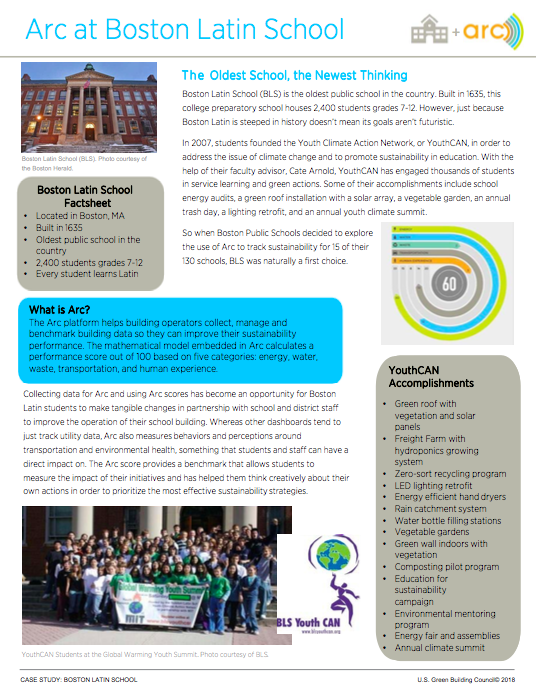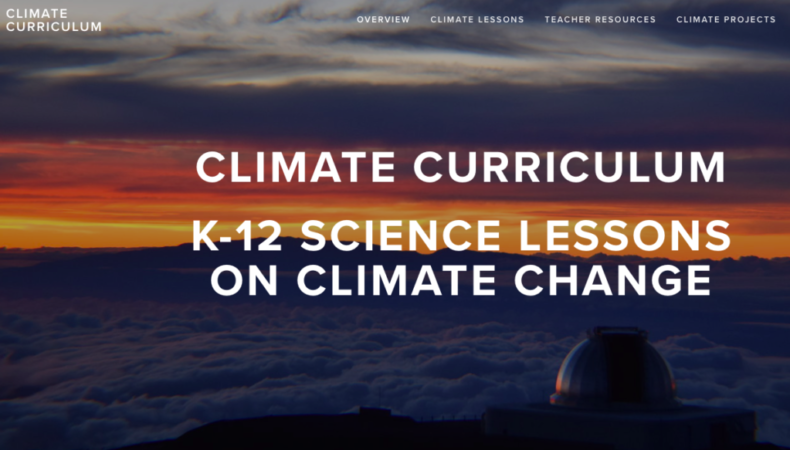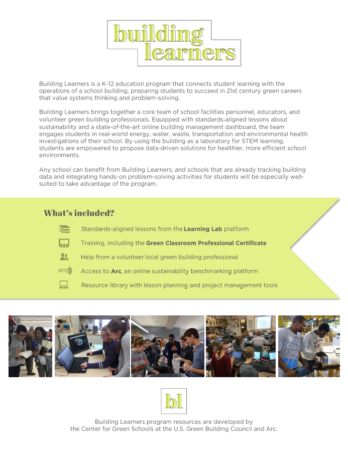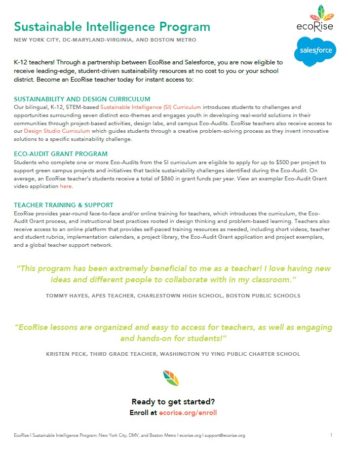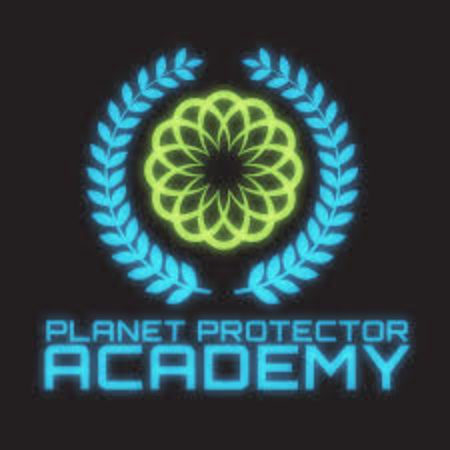BPS School Buildings as Living Laboratories:
“’living laboratories’ merge academics and campus facilities management to provide students with real-world skills and, for the institution, a path to meet its sustainability goals.”
BPS School Buildings as the Third Teacher:
“There are three teachers of children: adults, other children, and their physical environment.”
-Loris Malaguzzi
WHOLE SCHOOL SUSTAINABILITY FRAMEWORK
The Whole-School Sustainability Framework is founded on the imperative that in order to be successful, sustainability requires a whole-system approach.
A Whole-School Sustainability approach requires individuals from across an organization to work together—it cannot be accomplished in a silo. This system framework is organized into the three components of schools: organizational culture, physical place, and educational program. Within these three components, total of nine principles have been identified.
DISTRICT HIGHLIGHTS
-
Climate Science at Boston Public Schools is addressed continuously through the curricular offerings aligned to the 2016 MA STE Frameworks. A few examples include 1) Elementary example- beginning in preK, 3 and 4 year olds observe how weather changes daily and begin to see patterns (preK.ESS.2-5(MA)) Observing Nature Unit, by 3rd grade students are using data to chart (tables and graphs) and predict weather changes (seasons) (3.ESS.2-1) Water and Climate Unit; 2) OpenSciEd middle school units explore climate, climate change and sustainability through units including: 6.3 Weather, Climate, & Water Cycling; 7.6 Earth’s Resources & Human Impact; 8.4 Earth in Space; 3) OpenSciEd high school units (currently being field tested) include exploring energy flows (physics), ecosystems: interactions, energy and dynamics (biology); the units are based in phenomenon that students must investigate in order to develop understanding of the core concepts; 4) Outdoor Teaching and Learning classrooms – lessons embedded within the FOSS curriculum bring students outside of the traditional classroom to investigate a myriad of phenomena. Lessons on erosion, deposition, and weathering; insects and plants their complex relationship to each other; animal/insect habitats and human impacts.
-
The BPS Science, Technology, and Engineering (STE) Department has collaborated with BPS’s Early Childhood Department on their Focus curricula. Focus is a literacy curriculum that incorporates environmental literacy throughout its units. Children are also asked to identify problems and design solutions to many environmental issues we face (like the use of plastic bags or recycling materials.) Environmental Justice & Literacy: Departments are working to integrate environmental justice into literacy (writing/ELA) units. Some example topics include: Rising Heat & Extreme Temperatures (Grade 3), Urban Coyotes (grade 4), Food Systems (Grade 5), The United States Pipeline System (Grade 6).
- BPS Science and Boston Student Advisory Council created ClimateCurriculum.com, K-12 science lessons on climate change.
- Boston Green Academy was a recipient of a 2019 U.S. Department of Education Green Ribbon Schools Award. The award honors schools that reduce environmental impacts and costs; improve the health and wellness of students and staff; and provide effective environmental sustainability and education.
- During the 2018-2019 academic year, Madison Park Technical Vocational High School participated EcoRise’s Leed Prep Program.
- EcoRise received a grant from Salesforce to offer their Sustainable Intelligence Program to BPS teachers and schools during the 2019-2020 academic year. The program includes curriculum, funding for student projects, and teacher supports. Details at ecorise.org/enroll.
- Following several weeks of learning climate change science, Ms. Finkel’s 7th grade science class at the McKay implemented the “Climate Change Mixer” from the People’s Curriculum for the Earth, to roleplay how real individuals are already being impacted by climate change.
- BPS teachers Nicole Ruttan (Umana Academy K-8) and Kris Grymonpre (McCormack Middle School) were awarded the 2019 Massachusetts Secretary’s Award for Excellence in Energy & Environmental Education for their “Stormwater Management Curriculum integration pilot program”, using the Irving Middle School’s green stormwater infrastructure to teach the BPS GSI curriculum.
- In 2019, Boston Green Academy received Chapter 74 status for an Environmental Science & Technology career and technical education (CTE) pathway program, the only BPS school to offer this pathway. Graduates of the CTE pathway will be prepared to continue their education in college or enter the workforce with environmentally-specific knowledge and experience for work as water quality specialists, environmental scientists and engineers, and community and state officials investigating real-world environmental issues. Graduates of the Environmental Science pathway program will be certified in First Aid and CPR, 10-hour OSHA general industry safety, and OSHA 40-hour Hazardous Waste Operations. Students will also be trained in wastewater and drinking water technologies, and prepared to take the Massachusetts Class II Municipal Wastewater Treatment Plant Operators and Massachusetts Grade I Drinking Water Treatment Exams administered by the State of Massachusetts.
- BPS STEM Week focuses on “Improving the Health of our City”. The curriculum & materials are all connected to climate science and its impact on Boston. BPS STEM also held a Citywide College, Career, and STEM Fair on October 22, 2022, featuring college, career, and technical program representatives, STEM activities, and help with FAFSA.
BUILDING LEARNERS
Building Learners is a complete, data-driven and curricular package that uses your school’s eco footprint to bring lessons to life. Students sharpen their analysis and problem-solving skills and observe the benefits of their impact on their school’s sustainability performance.
Building Learners empowers students to use their building as a learning laboratory. Students collect, analyze, and conduct real-world investigations that inform improvements around waste, energy, water, health, and transportation at their school. Working with BPS Sustainability and a volunteer green building professional serving as a mentor, students also get exposure to sustainability careers and build positive relationships with members of their community.
Boston Latin School, Boston Green Academy, and Josiah Quincy Elementary School have previously used Building Learners.
CONTACT US
Facilities Management
1216 Dorchester Ave.
Boston, MA 02125
617-635-9576




